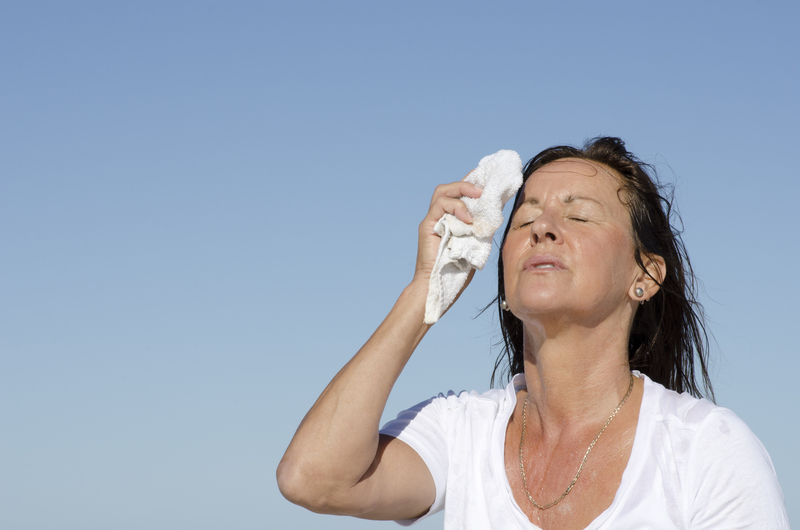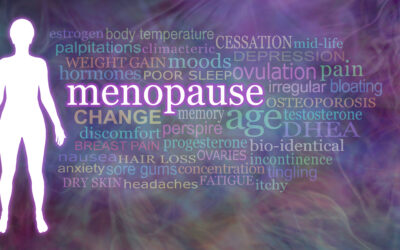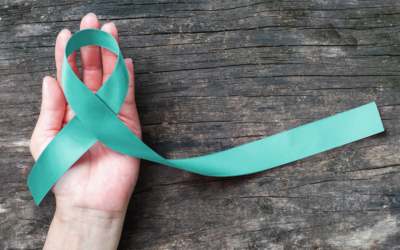Menopause Myths Debunked: What Every Woman Needs to Know
Menopause, a natural part of aging, is often misunderstood due to a flurry of myths and misconceptions. This article sets out to debunk these myths, empowering women with the truth to navigate this phase with knowledge and confidence.
Myth 1: Menopause Begins at 50:
Fact: The onset of menopause is not age-specific. While the average age for menopause in the United States is around 51, women can enter menopause as early as their late 30s or as late as their 60s. Factors such as genetics, health, and lifestyle all contribute to when a woman will reach menopause. Smoking, for example, has been shown to lead to early menopause.
Myth 2: Menopause Happens Suddenly:
Fact: Menopause is not an instantaneous event. It’s a gradual process, usually preceded by a phase known as peri-menopause, which can begin several years before menopause. During peri-menopause, estrogen levels start to fluctuate, causing irregular menstrual cycles and various symptoms. Understanding this can help women manage symptoms effectively and seek help when necessary.
Myth 3: Hot Flashes Happen to Every Woman:
Fact: While hot flashes are one of the most common symptoms of menopause, not every woman will experience them. Hot flashes can range from mild to severe and can last from a few seconds to several minutes. Factors such as body weight, stress, and lifestyle can influence the frequency and intensity of hot flashes.
Myth 4: Menopause Always Leads to Depression:
Fact: Hormonal changes during menopause can affect mood and lead to feelings of sadness, but menopause does not necessarily cause clinical depression. However, women with a history of depression or anxiety may be more susceptible. It’s crucial to differentiate between temporary mood swings and persistent feelings of depression, as the latter may require professional treatment.
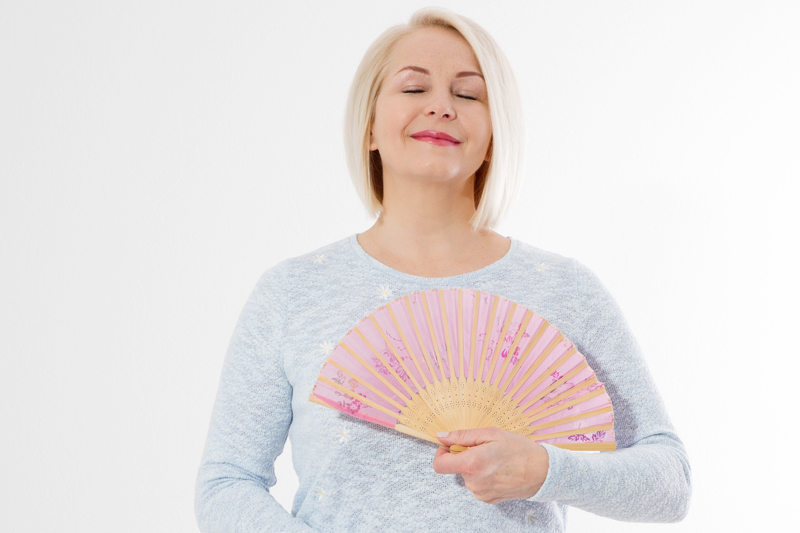
Myth 5: Weight Gain is Inevitable:
Fact: While hormonal changes during menopause can affect metabolism and body composition, leading to weight gain, especially around the abdomen, it is not inevitable. Maintaining a balanced diet, engaging in regular physical activity, and ensuring sufficient sleep can help manage weight during menopause. Each woman’s experience with menopause is unique, and so are the changes their bodies may undergo.
Myth 6: Menopause Ends Your Sex Life:
Fact: While menopause can lead to changes in sexual health, such as decreased libido and vaginal dryness, it doesn’t mean the end of your sex life. Various treatments can alleviate these symptoms, such as vaginal moisturizers, lubricants, and hormone therapy. Open communication with your partner and focusing on emotional intimacy can also help maintain a fulfilling sexual relationship.
Myth 7: You Don’t Need Birth Control During Menopause:
Fact: During peri-menopause, menstrual cycles become irregular, but ovulation can still occur. This means that pregnancy is still possible until menopause is reached, defined as 12 consecutive months without a period. Until then, it’s important to continue using some form of birth control if pregnancy is not desired.
Myth 8: Menopause Causes Bone Loss in Every Woman:
Fact: It’s true that decreased estrogen levels during menopause can lead to bone loss, increasing the risk of osteoporosis. However, not all women will experience significant bone loss. A diet rich in calcium and vitamin D, regular weight-bearing exercise, and maintaining a healthy lifestyle can all help maintain bone health.
Myth 9: Hormone Replacement Therapy (HRT) is Dangerous:
Fact: While HRT does carry certain risks, such as a slight increased risk of certain types of cancer and heart disease, it is not universally dangerous. HRT can also offer benefits like reducing menopause symptoms and protecting against osteoporosis. It’s crucial to have a detailed discussion with your healthcare provider about the potential benefits and risks of HRT.
Myth 10: Menopause is a Disease:
Fact: Menopause is not a disease or a medical problem; it’s a natural biological process that every woman experiences as she ages. While menopause can bring uncomfortable symptoms for some, it’s possible to manage these symptoms effectively. Remember, experiencing menopause isn’t an illness—it’s a life transition.

Myth 11: Menopause Symptoms are Severe for Everyone:
Fact: Menopause symptoms vary greatly from one woman to another. Some women may experience severe hot flashes, sleep disturbances, or mood swings, while others may go through menopause with few or even no noticeable symptoms. Understanding that symptoms can vary greatly can help alleviate fear or anxiety about this natural process.
Myth 12: Irregular Periods Always Signal Menopause:
Fact: While changes in menstrual cycles are a hallmark of peri-menopause, other factors can also lead to irregular periods, such as stress, extreme weight loss or weight gain, certain medications, and conditions like polycystic ovary syndrome (PCOS). If your periods become irregular, it’s essential to consult with a healthcare provider to rule out other possible causes.
Myth 13: Only Older Women Experience Menopause:
Fact: Most women experience natural menopause between their late 40s and early 60s, but menopause can occur earlier due to surgery, such as hysterectomy, or damage to the ovaries, such as from chemotherapy. This is known as premature menopause, which can occur in women in their teens, 20s, and 30s.
Myth 14: All Women Should Take Hormone Replacement Therapy (HRT):
Fact: While HRT can be beneficial in treating several menopausal symptoms like hot flashes, night sweats, and vaginal dryness, it isn’t the only treatment option, nor is it suitable for everyone. Some women might find relief from symptoms through lifestyle modifications such as regular exercise, a healthy diet, adequate sleep, and stress management techniques. Additionally, non-hormonal medications can be helpful in managing specific symptoms. The choice to use HRT should be made in consultation with your healthcare provider, considering your individual symptoms, medical history, and personal preferences.
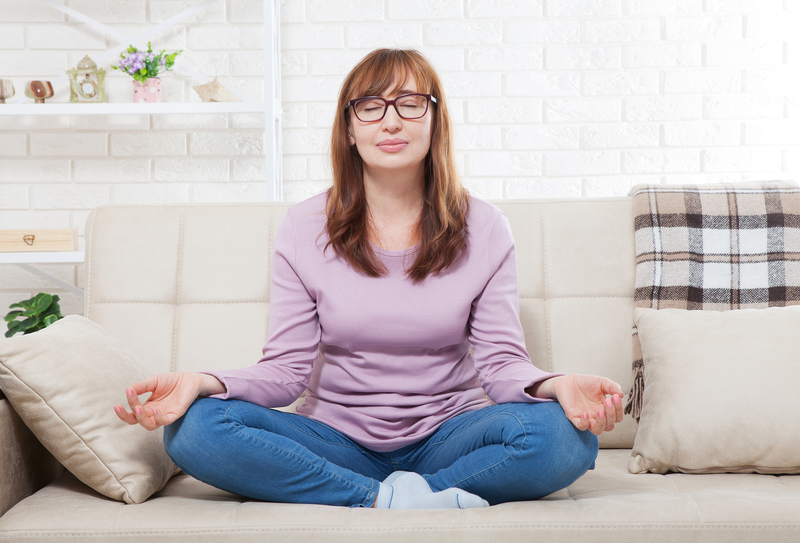
Navigating the path of menopause becomes less challenging when armed with the right knowledge. By debunking these common myths, we hope to shed light on the realities of this natural life transition, ensuring every woman can face menopause informed and prepared. Each woman’s journey is unique, and understanding that there is no “one-size-fits-all” approach is key. We encourage you to continue learning, consult with healthcare professionals, and make decisions that best suit your health needs and life goals. After all, menopause is not an end, but a transition to another stage of life – one that can be embraced with understanding, confidence, and grace.
